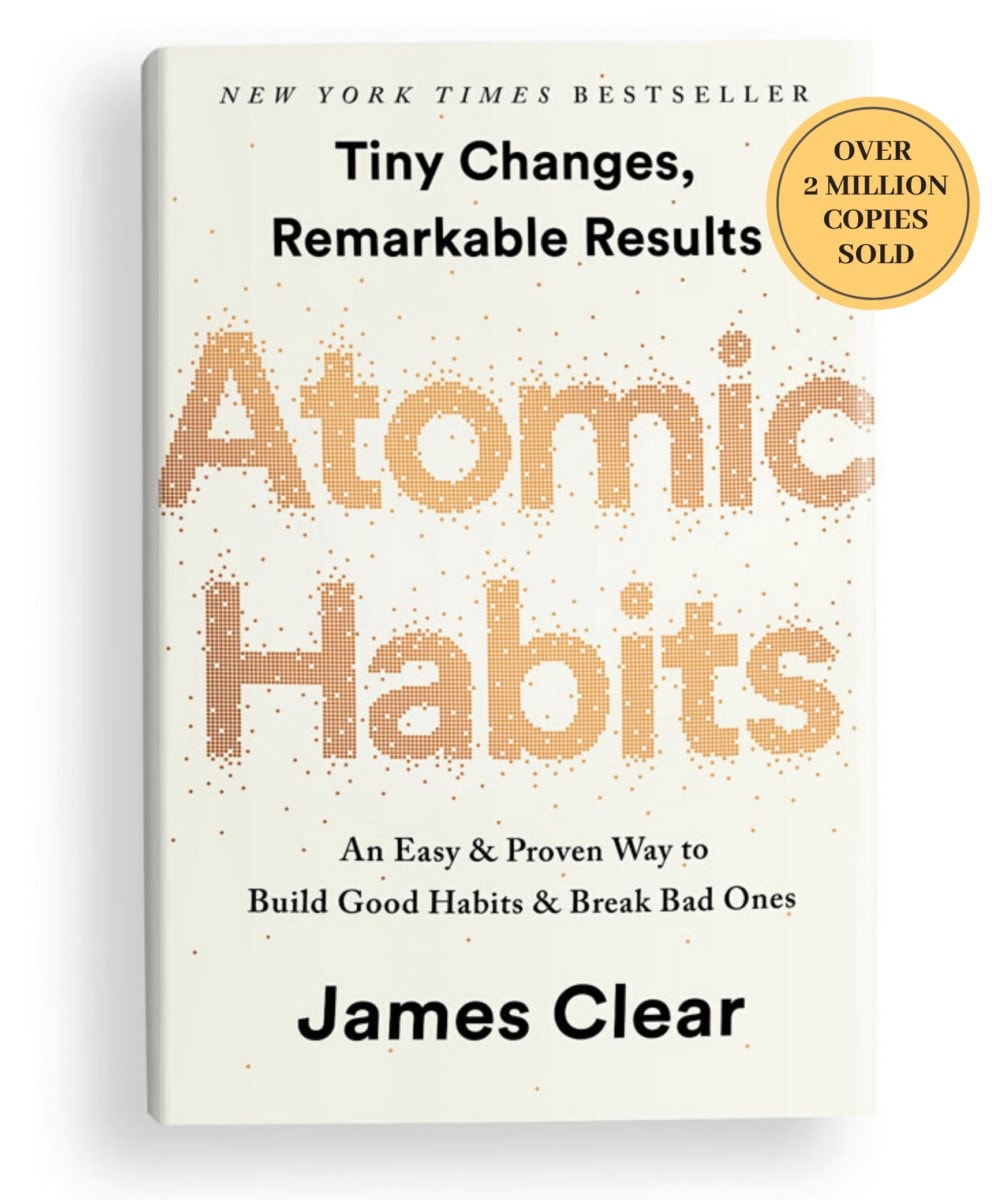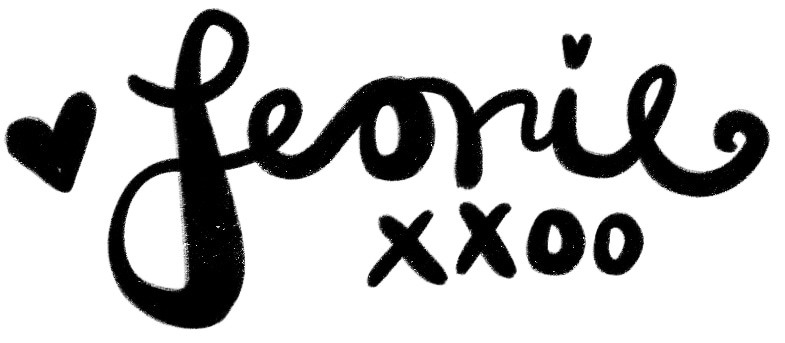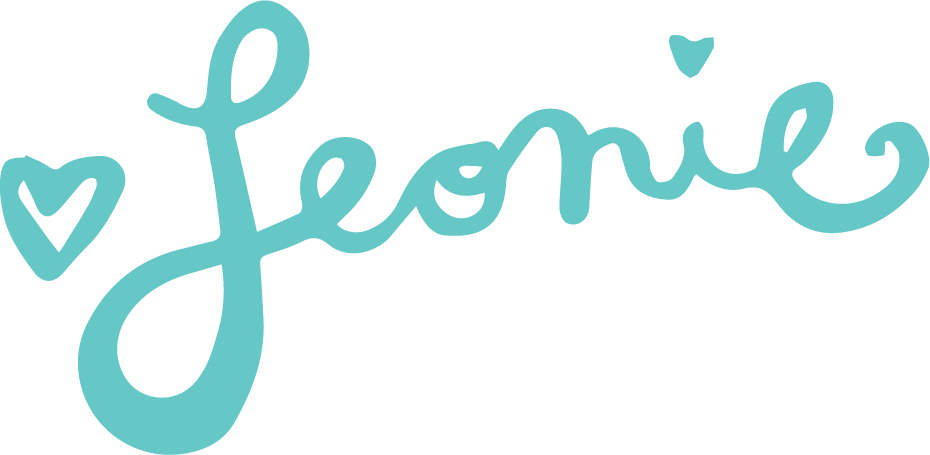
Pookybears,
Yesterday I shared with you my notes from reading Order From Chaos.
I found it helpful writing out those notes, so I thought I’d try again with another book!
I just finished Atomic Habits by James Clear today. It’s a super sonic bestseller – over 3 million copies now sold. I’ve seen it around quite a bit the last few years, and decided to grab a copy a few months ago because I was wanting to improve my habits.
I think it was a great book. HOWEVER… I am unsure yet whether I:
a) can remember anything from it (thus me reviewing my notes here)
b) will actually do anything differently from it.
I’ll let you know over time if it does make a big difference in habit formation & keeping!
In the meantime, here’s my notes!
- Changes that seem small and unimportant at first will compound into remarkable results if you’re willing to stick with them for years. With better habits, anything is possible.
- British Cycling made massive gains in improvement by aggregating marginal gains… possibly. It may also be due to the fact they were doping.
- Too often, we convince ourselves that massive success requires massive action. Improving by 1% can compound over time. What starts as a small win can accumulate into something much more. Habits are the compound interest of self improvement.
- The effects of habits multiply as you repeat them.
- Your net worth is a lagging measure of your financial habits.
- Goals are about the results you want to achieve. Systems are about the processes that lead to those results. Focus on systems.
- Becoming the best version of yourself requires you to continuously edit your beliefs, and to upgrade and expand your identity.
- Ask yourself “Who is the type of person that could get the outcome that I want?” i.e. “What would a healthy person do?”
- You don’t need to be perfect. Your goal is simply to win the majority of the time with good habits over bad.
- Your identity emerges out of your habits. Every action is a vote for the type of person you wish to become.
- Without good health habits, you will always be short on energy.
- A habit is a behaviour that has been repeated enough times to become automatic.
- The ultimate purpose of habits is to solve the problems of life as little energy and effort as possible.
- The Four Laws of Behaviour Change are a simple set of rules we can use to build better habits
1) make it obvious
2) make it attractive
3) make it easy
4) make it satisfying - Habit stack by pairing a new habit with an existing habit.
- Make the cues of good habits obvious in your environment.
- People with high self-control tend to spend less time in tempting situations. It’s easier to avoid temptation than resist it.
- One of the most practical ways to eliminate a bad habit is to reduce exposure to the cue that causes it.
- Self-control is a short-term strategy, not a long-term one.
- Make the cues of bad habits invisible.
- Temptation Bundling: bundle a necessary habit with something enjoyable. For example, listen to podcasts or voicemails only while walking.
- Habits are attractive when we associate them with positive feelings, and unattractive when we associate them with negative feelings.
- Quantity of creating breeds quality.
- The most effective form of learning is practice, not planning.
- Make the good habit the path of least resistance.
Reduce friction and obstacles between you and good habits.
Increase friction and obstacles between you and bad habits. - Create an environment when doing the right thing is as easy as possible.
- When you start a new habit, it should take less than 2 minutes to do.
- The point is to master the habit of turning up.
- Victor Hugo had a book to write… so he locked up all his clothes and only left himself with a shawl. That way he couldn’t leave the house and needed to just write the book instead. Ha!
- The ultimate way to lock in future behaviour is to automate your habits.
- You are more likely to repeat a behaviour when it is satisfying.
- What is rewarded is repeated. What is punished is avoided.
- The costs of good habits is in the present.
The costs of bad habits are in the future. - Make things satisfying using habit trackers, visual reminders of progress, money thermometers etc.
- If you miss a day try to get back on track as soon as possible.
- When you create an overarching goal, break it down into shorter priorities or phases and then daily habits to achieve that.
- Give yourself unpalatable consequences if you don’t follow through on something.
- Have an accountability partner or be public about your goals.
- The Big 5 Personality Traits
1) Openness to new experiences
2) Conscientiousness
3) Extroversion
4) Agreeableness
5) Neuroticism - The Big 5 Personality Traits have biological underpinnings. For example: neuroticism = hypersensitivity of the amygdala.
- Exploit/explore tradeoff
If winning or attaining the goal you want = keep exploiting current methods. Exploit exploit exploit.
If losing or not attaining the goal you want = explore new methods. Explore explore explore. - A good player works hard to win the game everyone else is playing. A great player creates a new game that favours their strengths and avoids their weaknesses. Play a game that favours your strengths.
- Goldilocks Rule: set goals that are a stretch, but not unattainable. (i.e. not too hot, not too cold).
- Have a system for reflection and review to have continuous improvements over a career.
- Review
a) what went well
b) what didn’t go well
c) what did I learn.
Hope this was useful in some way!
I read 90% of books on Kindle, and refer to my saved highlights & notes that are automatically added to my Goodreads account. Sometimes when I really want to study a book however, I get it in paperback.
I read this book in paperback format, and studied it like a textbook with highlighters & pens.
Happy learning my loves!
Big hugs,


FREE GOODIES:
- Newsletter with absoloodely everything I create
- Weekly love letters
- Podcast: Leonie Dawson Refuses To Be Categorised
- A library of free treasures
BOOKS:
- Goal Getter workbooks for 2022 & beyond!
- Calm Christmas Planner
- Salt: a hottttt romance novella (published under my pen name Lola Leigh)
COURSES:








